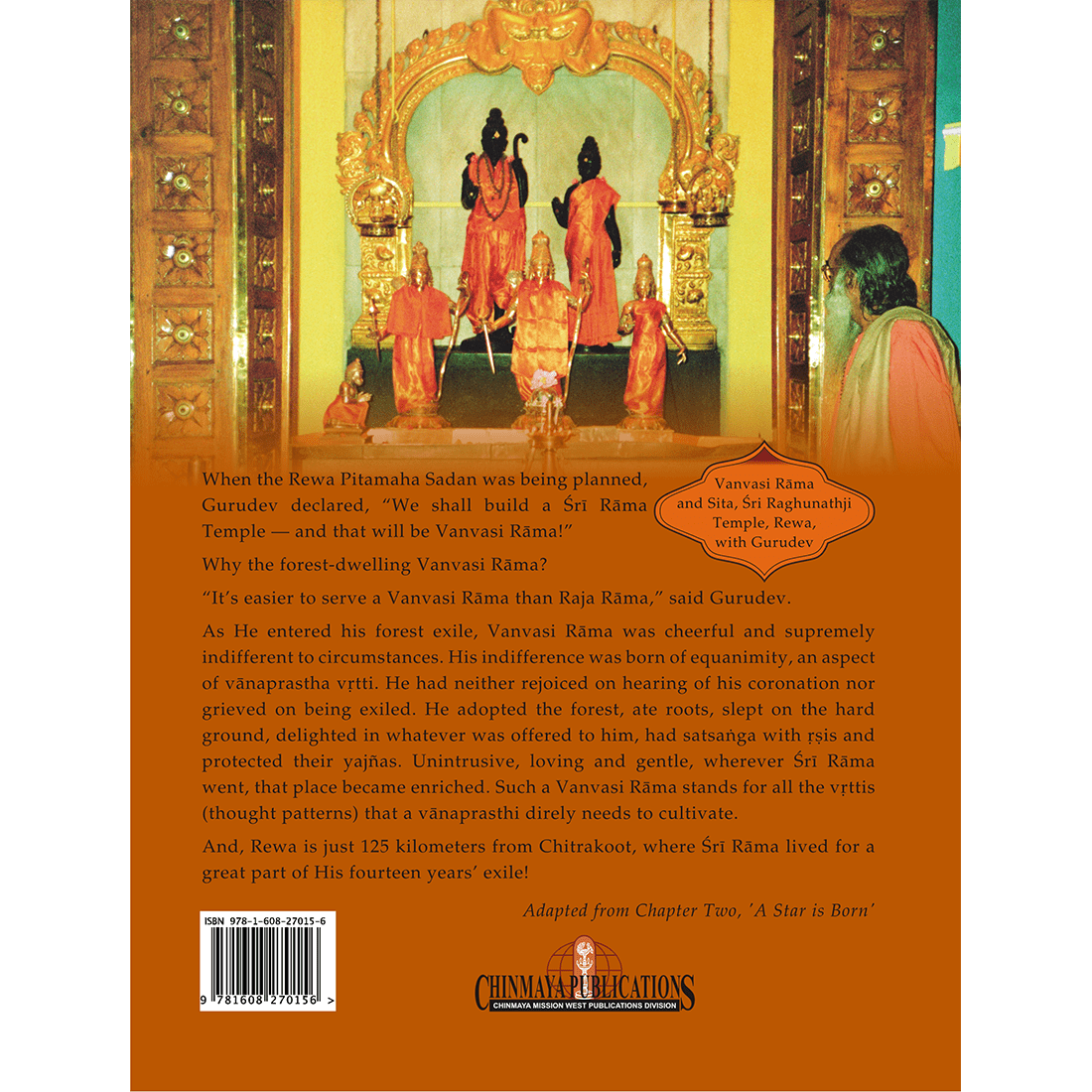Mananam Series
Vanaprastha - A Joyous Journey Toward Liberation (Mananam Series) is backordered and will ship as soon as it is back in stock.
Couldn't load pickup availability
Make a bulk order enquiry
Product Description

Inspiring Right Living

Rooted in Wisdom

An Offering of Love

Product of Bharat
Product Description
When the Rewa Pitamaha Sadan was being planned, Gurudev declared, "We shall build a Sri Rama Temple - and that will be Vanvasi Rama!"
Why the forest-dwelling Vanvasi Rama?
"It's easier to serve a Vanvasi Rama than Raja Rama," said Gurudev.
As He entered his forest exile, Vanvasi Rama was cheerful and supremely indifferent to circumstances . His indifference was born of equanimity, an aspect of vanaprastha vritti. He had neither rejoiced on hearing of his coronation nor grieved on being exiled. He adopted the forest, ate roots, slept on the hard ground, delighted in whatever was offered to him, had satsanga with risis and protected their yagnas. Unintrusive ,loving, and gentle, wherever Sri Rama went, that place became enriched. Such a Vanvasi Rama stands for all the vrittis (thought patterns) that a vanaprasthi direly needs to cultivate.













